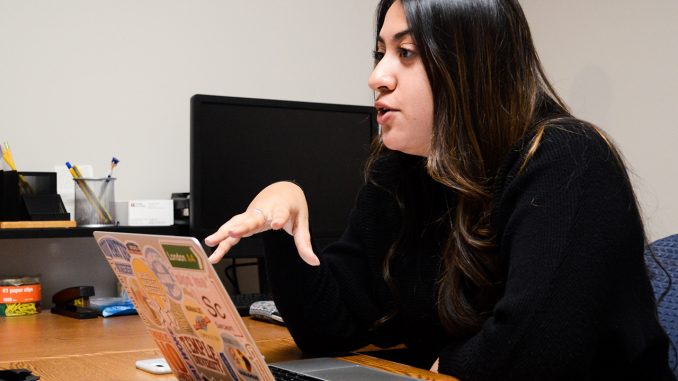
Temple Student Government is working toward creating a “multicultural caucus” through a Google Form to connect with cultural and international student organizations at Temple by the end of the semester.
TSG is scaling back the idea after first touting as an in-person forum.
Leaders of organizations classified as “Cultural/International” on Owl Connect will be able to write to TSG about problems they see on campus or in the surrounding community, said Student Body President Francesca Capozzi.
“We thought this was important we have these discussions with leaders of multicultural organizations about issues not only on our campus, but in the surrounding community, and how TSG can tackle those issues,” Capozzi said.
TSG decided to make it an online form after realizing how many cultural and international organizations were on campus, Capozzi added. There are 154 listed on Owl Connect.
“Obviously getting all of those people to meet at one time is just not feasible, so we’ve decided to take the multicultural caucus online and make it a virtual platform for people to express their concerns,” said Ammani Khan, TSG’s director of campus life and diversity and a junior human development and community engagement major.
The administration campaigned on working with the student body to combat racial and cultural issues on campus and celebrating cultural differences.
Capozzi highlighted the multicultural caucus idea in her speech to the Board of Trustees on Oct. 8.
After organization leaders fill out the form, TSG will reach out to them to initiate further discussion, Capozzi said.
Darius Hockaday, a senior marketing major and president of Strong Men Overcoming Obstacles Through Hardwork, suggested the caucuses to TSG and has been working with TSG.
“Providing the multicultural caucuses will provide more inclusive and safe spaces for individuals that represent those different ethnic communities to join together and speak about issues that affect them directly,” Hockaday said.
Haya Qubbaj, the secretary of Students for Justice in Palestine, said that although she would prefer a face-to-face meeting, she supports the initiative.
“I think it’s nice,” said Qubbaj, a freshman media studies and production major. “I don’t see anything wrong with helping support other organizations.”
Priscilla Ampofo, the fundraising chair for Black Professional Health Association, said the online caucuses are a good first step but that an in-person meeting would be more personable.
“Typically, it’s not going to be the entire e-board or the entire audience,” said Ampofo, a junior health professions major. “It’s going to be like, one or two people, so then it’s like a very limited opinion poll.”
Ariana Davis, the president of Psychology Majors of Color, said the mission of the caucuses seems “broad” and that the issues that her organization faces often are institutional.
“I don’t know how they realistically would be able to do anything about any of those,” said Davis, a psychology and Spanish double major.
An in-person meeting might be better because it’s hard to describe situations over text, she added.
“I do think that people don’t always check their emails. …Sometimes, it’s really hard to try and convey what you want to say on a Google Form,” Davis said.



Be the first to comment